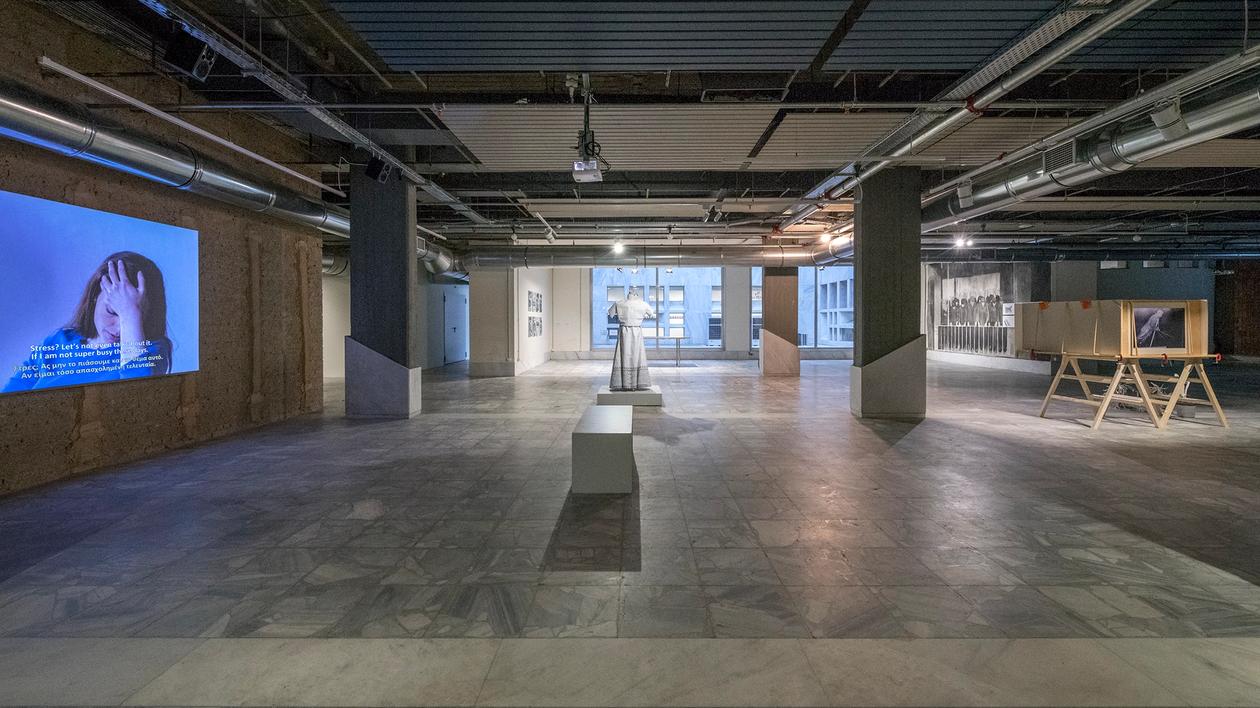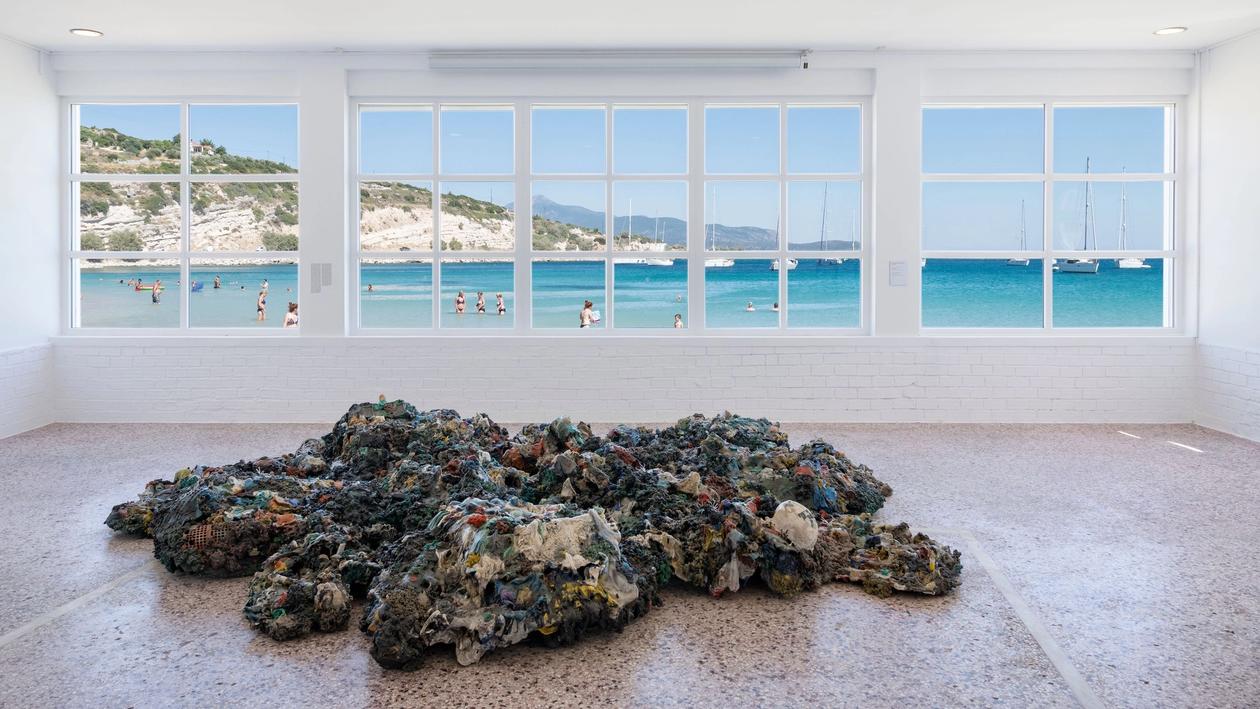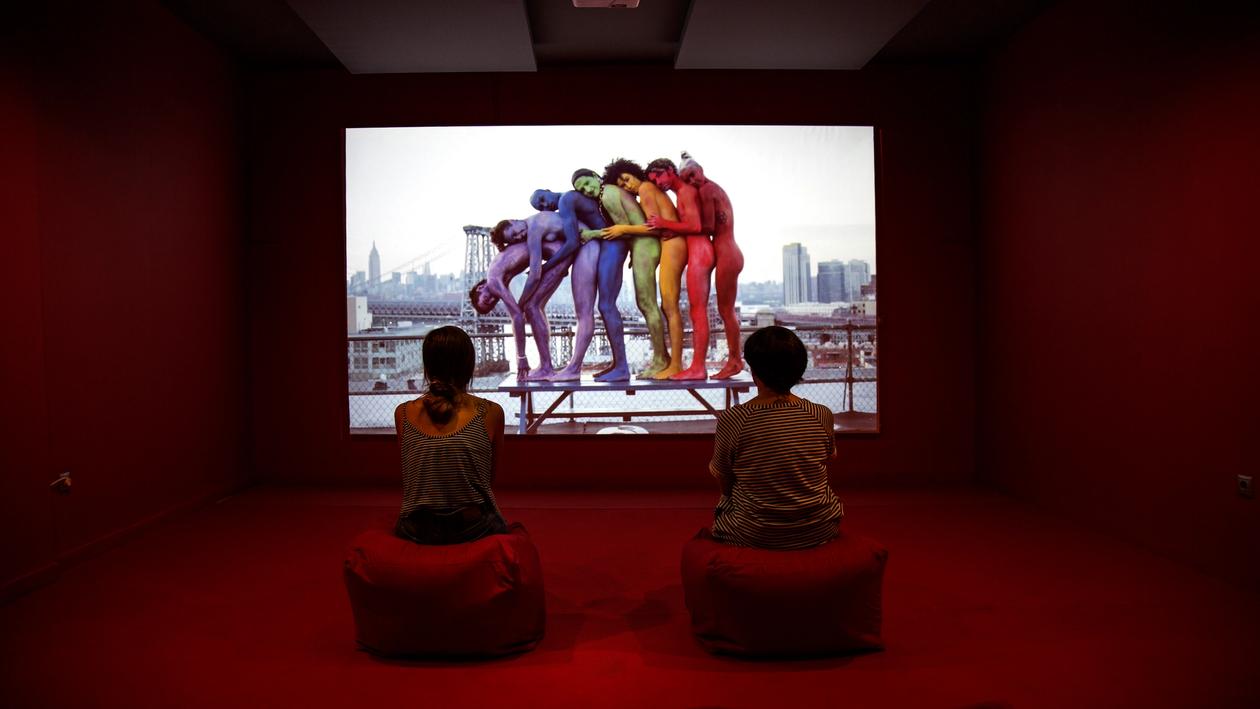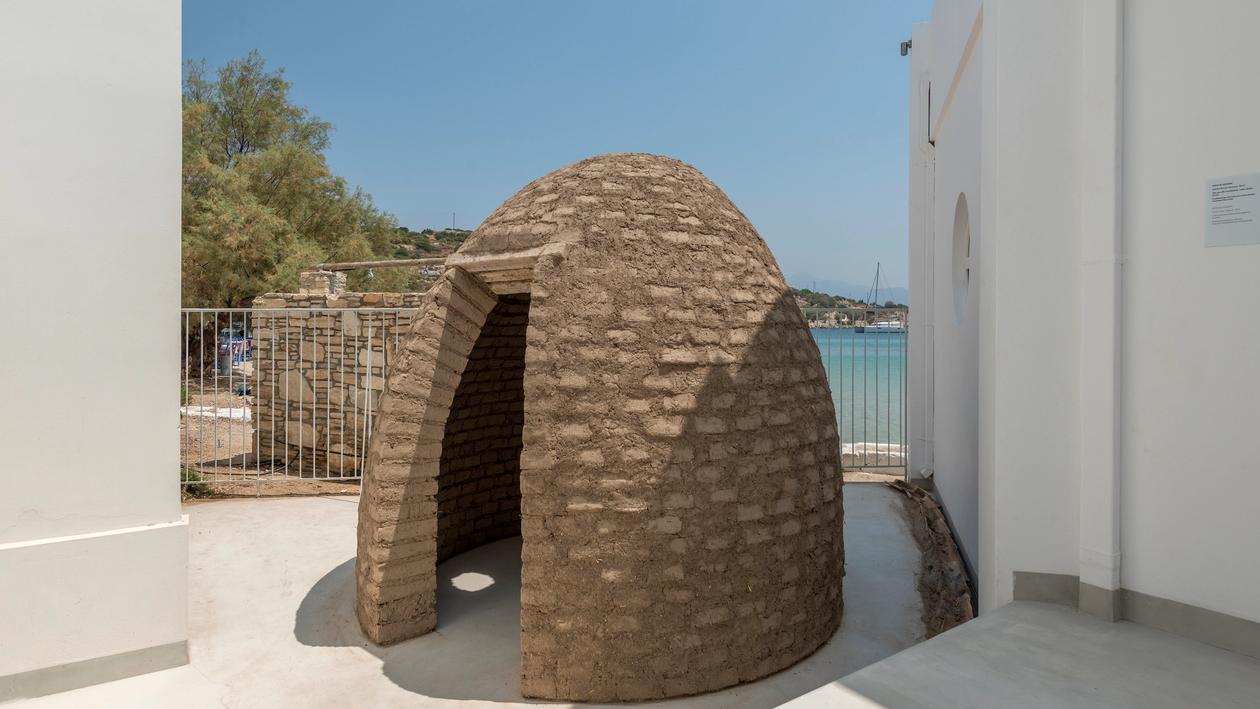
Anatomy of Political Melancholy 2018
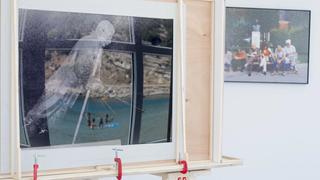
Foreground: Thu Van Tran, Bonheur Immédiat, 2009/2018
Courtesy of the artist and Meessen Declercq, Brussels
Background: Georges Salameh, Cavafy, 1999

Participating Artists
Curator
Anatomy of Political Melancholy
Text by Katerina Gregos
“Change happens when we decide what we want, rather than what we think we might get.”
- George Monbiot
What has happened to the state of contemporary politics? Wasn’t there once a time when politicians were driven primarily by unselfish motives or altruistic intentions and entered politics to serve the public good –a time when politicians were well-educated people, bound by moral integrity and high ideals? True, politics has always been prone to corruption and the abuse of power, but in recent years it seems that self-serving private interests – or the interests of industry and business – have come to take precedence over the interests of the wider electorate. Citizens, it seems, exist only to be managed, manipulated and exploited, rather than served. Political campaigns deliver messages of fear, rather than of hope; scandals abound and miscreants offer apologies without sincerity and then quickly return to ‘business as usual’. Voting is no longer about positive choice, but about accepting the lesser of two evils. No wonder then that fewer and fewer people are turning out to vote.
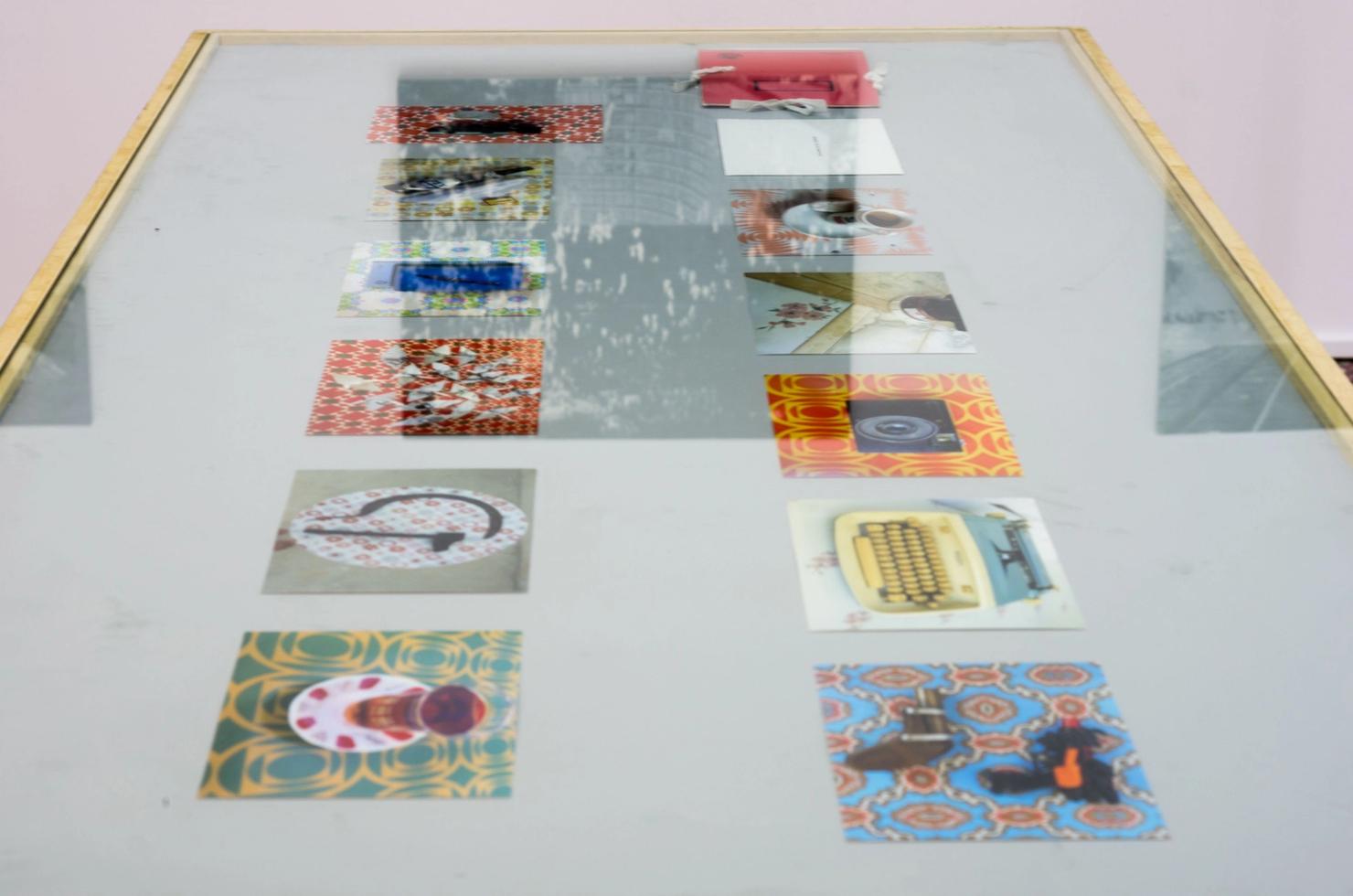
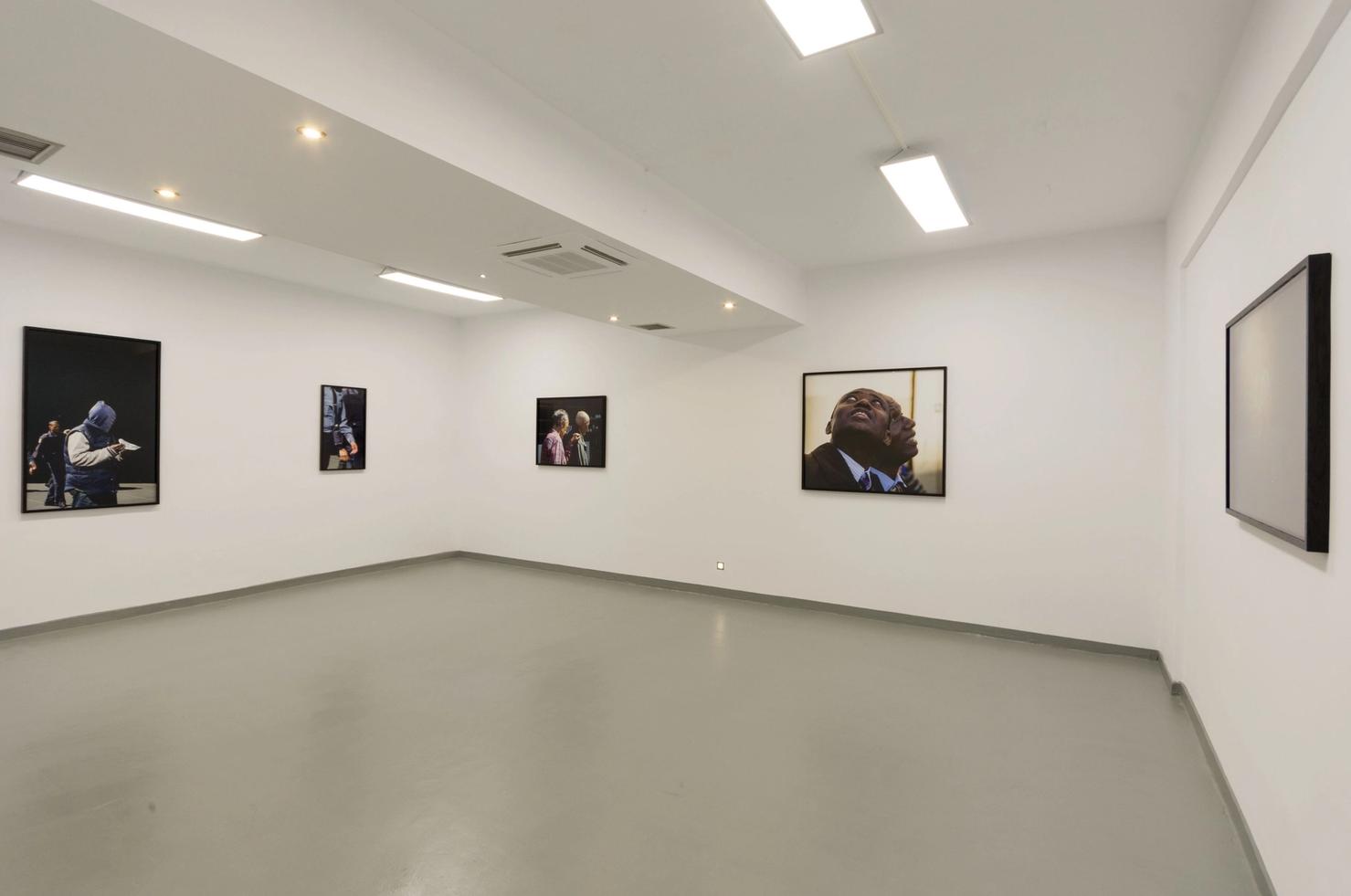
In addition, we have witnessed the debasement of political language, the infantilisation and polarisation of debate, and the growth of a simplified discourse that panders to collective fears rather than addressing the real, pressing questions. Welcome to the heydey of ‘psychopolitics’ – the interaction between politics or political phenomena and human psychology. With Trump in the White House and Putin in the Kremlin, psychopolitics has taken on a new, frightening, meaning. No wonder so many of us feel disillusioned. Philosopher Lieven de Cauter calls this sense of disillusionment ‘political melancholy’: a sinking feeling borne from frustration, anger, despair, mistrust, sadness and hopelessness. (This exhibition is inspired by his text Small Anatomy of Political Melancholy.) 1 The disillusionment with politics, government, state institutions and political parties is at an all-time high. For the first time since World War II (which was preceded by similar political crises of the 1920s and 1930s), we have reason to fear the disintegration of peace and the rise of aggressive nationalism.
Clearly there is something profoundly wrong with contemporary politics: not only the moral and intellectual inadequacy of politicians, but also the gaping chasm between the aims of politicians and the needs of citizens. The foundations of democracy itself are at risk, not only from the rise of demagogic populism in Europe, but also from the grip of financial institutions and mega-corporations. Greece, of course, exemplifies the loss of sovereignty due to debt, where ordinary citizens have been forced to bail out a country driven to financial collapse by government mismanagement. The longstanding economic and political crisis in Greece has led to political disillusionment, mistrust of institutions, and a sense of collective powerlessness, and a post-ideological phase characterized by apathy, individualism, and resignation. According to sociologist of law Ioannis Kampourakis: “This defeatism fits into a longer trend in Greece, tracing back to the defeat of the communist left after the post-WWII Civil War, of nostalgia and glorification of a ‘struggle fought, even if lost’, which has aestheticized the contemporary apathy as a form of political pessimism and melancholy.” 2
- Saturday, August 4
Film Screening The Invisible Hands (2017) by Marina Gioti, co-directed by Georges Salameh
- Marina GiotiArtist
- Georges SalamehArtist
Curatorial Residency Program
The art curatorial residency programme is a Schwarz Foundation initiative aiming to bring together young professionals from different fields of science and art. Participants acquire professional experience by actively working together with internationally acclaimed art curators. In the inspiring ambiance of a historic and cultural area of high geographic importance, residents work at a freshhold between West and East. Residents meet, interact and develop ideas and references to an extensive community. The residents actively participate in the curating and production of the Art Space Pythagorion exhibition under the curator’s guidance. The production of complementary side-events, such as opening activities, lectures, workshops, educational programmes for children and screenings also fall in their line of work.
- Resident Curators
- Iro AkrivouResident Curator
- Dora VasilakouResident Curator
- Georgiana CojocaruResident Curator
Education Programme
Art Space Pythagorion’s educational program is based on the exhibition’s concept and the works in it, focusing on the students' experiences – how they been shaped by the financial crisis and immigration. Particular emphasis will be placed on individual and collective changes of behaviour caused by political melancholy, while historical examples of the depiction of melancholy in art will be presented and discussed.
The educational program will focus on introducing the works in the exhibition through the creation of a “Notebook” which will include text corresponding to the different meanings of political melancholy, in order to poetically expressly content devised by the participants. Instead of protest slogans, a call for awareness and instead of violent provocations, shared expressions of common experience. The “Notebook” will be given to students in the form of 11 postcards with illustrations of the works of the exhibition. The children are asked towrite on the back side of each card, based on their experience of the exhibition. This final collection of images and phrases will belong to the participating children who will then have the chance to send their cards wherever they wish. The cards will act as reminders of an era, their own era, an era which is looking for ways to escape from clichés and manipulation. These "quotes" and cards will later be used in school as a trigger for discussion, writing of reports or texts, theatrical events or the production of a publication.
The idea is to build a personal Artbook that collects images and phrases while acting as a reflection of a time characterised by political melancholy and personal impasses.
The educational program is designed for children over 10 years old. Each session lasts for 2 hours. At the start of the academic year, the program will also be addressed to students.
Press
- Monopol, Werner Bloch, Warum Saturn die Welt regiert (DE)
- kunst aspekte, Anatomy of Political Melancholy (EN)
- Current Athens, Anatomy of Political Melancholy (EN)
- EfSyn, Pari Spinou, Τέχνη σε φόντο... blue mood (GR)
- ERA Aegean, Myrsini Tzinelli, Σάμος: Έκθεση “Ανατομία της πολιτικής μελαγχολίας” (GR)
- Athinorama, Despina Zeykili, Κατερίνα Γρέγου: «Οι πιο επιτυχημένες μπιενάλε είναι εκείνες που δεν συνθλίβονται υπό το βάρος των φιλοδοξιών τους» (GR)
- AllYou, Alexandra Papadaki, Κατερίνα Ζαχαροπούλου: "Η τέχνη είναι η συνωμοτική μας οδός" (GR)
- Kathimerini, Maro Vasileiadou, Μια καρτ ποστάλ από τα παιδιά της Σάμου (GR)
- Popaganda, Eleni Tzannatou, Μπορεί η τέχνη να ξορκίσει την πολιτική μελαγχολία; (GR)
- EfSyn, Theodoros Georgiou, Στην εποχή της «πολιτικής μελαγχολίας» (GR)
Exhibition Brochure
Credits
- Concept-Curator: Katerina Gregos; Exhibition consultant (photography): Dimitris Tsoumplekas; Curatorial Assistant: Ioli Tzanetaki; Installation: Yorgos Efstathoulidis / Constructivist; Audiovisual Equipment: M-SPIRIT ΜΟΝ.- Kostas Perifanos ; Media Relations: Zuma Communications, Athens ; Educational Programme: Katerina Zacharopoulou; Assistants: Evangelia Vakiarou (Educational Programme), Vasileios Pristouris (Media Relations)
With the support of:
- Municipality of Samos, Municipal Harbour Fund of Samos, Port Authority of Pythagorion
